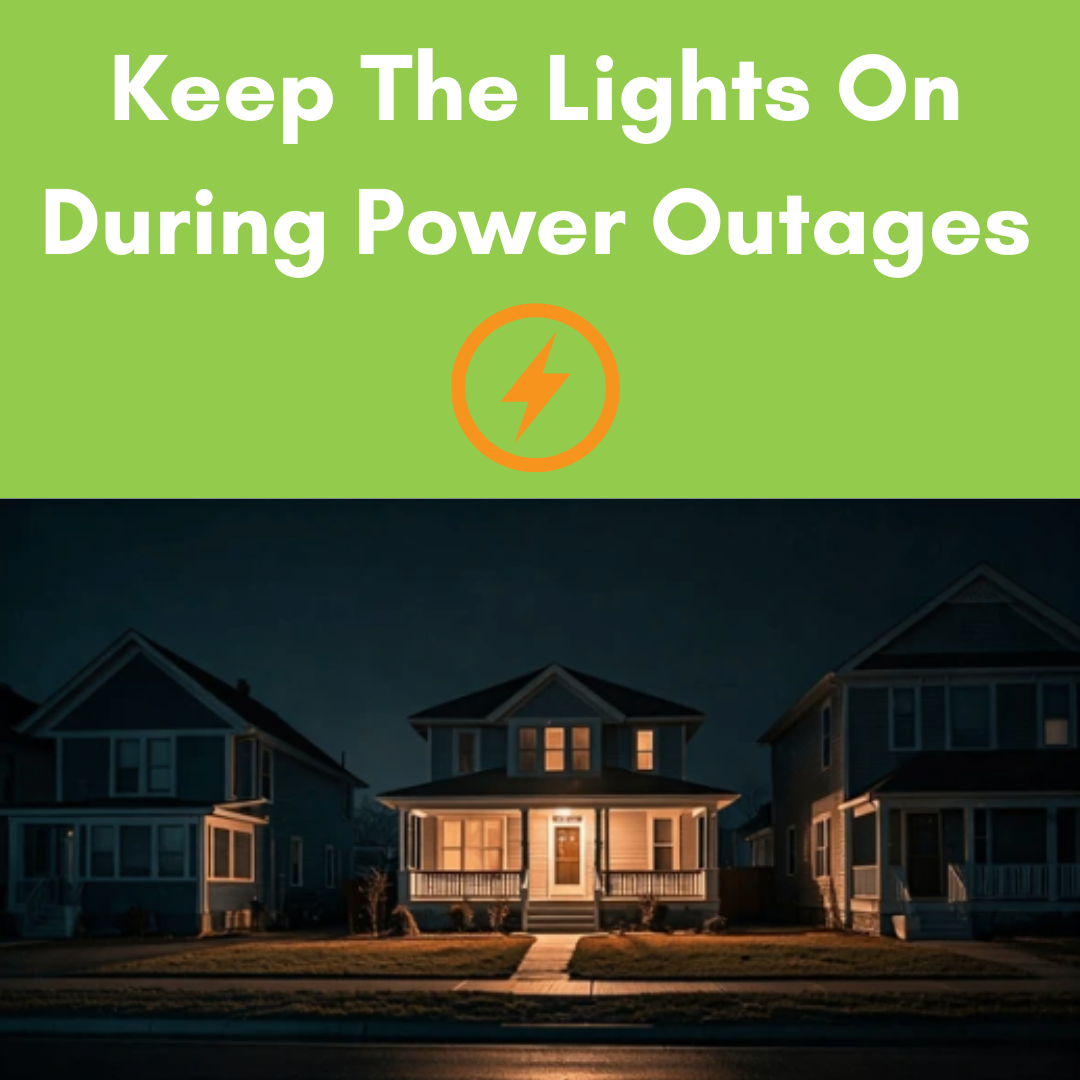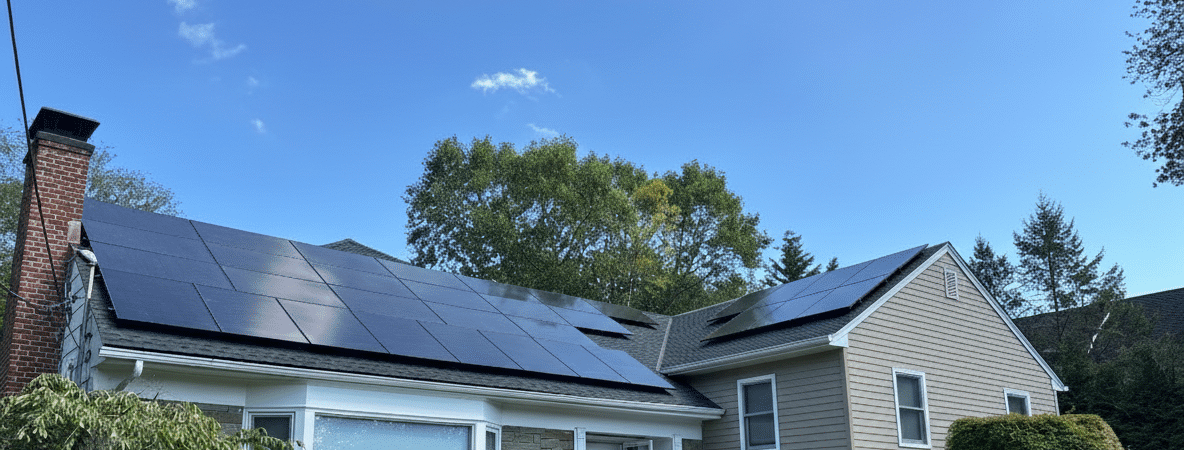Tesla Powerwall and Solar Battery Backup: How It Works and Why It’s a Smart Choice for Homeowners
As more homeowners and businesses turn to solar power for a greener and more cost-effective energy solution, one challenge remains: What happens when the sun goes down or during cloudy days? Enter solar batteries. These powerful storage systems ensure that the energy generated by your solar panels isn’t wasted and can be used whenever needed. Among the top names in the market, Tesla’s Powerwall has gained significant attention, but solar batteries in general, offer a versatile range of benefits for anyone relying on solar energy.
What Are Solar Batteries?
Solar batteries are energy storage devices designed to store excess energy produced by your solar panels during the day. Instead of sending all the extra energy back to the grid, a solar battery stores it, allowing you to use that power when your panels aren’t producing energy, like at night or during an outage. Essentially, they work as a backup system, ensuring a steady supply of electricity for your home.
How Do Solar Batteries Work?
When integrated with solar panels, solar batteries create an efficient and self-sustaining energy system. Here’s how it works:
- Daytime Energy Production: During daylight hours, your solar panels convert sunlight into electricity. Any power that isn’t immediately used in your home can be stored in the battery.
- Energy Storage: The solar battery collects any surplus electricity generated by your solar panels. This stored energy becomes available when the panels aren’t producing electricity, such as during the night or overcast days.
- Nighttime Energy Use: When the sun goes down, your battery takes over, supplying power to your home from the stored energy. This means you can enjoy the benefits of solar power 24/7, not just when the sun is shining.
- Backup Power During Outages: Solar batteries also provide a crucial backup during power outages. When the grid goes down, the battery kicks in, keeping your essential appliances running and ensuring your home remains powered.
The Benefits of Solar Batteries
- Energy Independence: Solar batteries give you greater control over your energy usage. Instead of relying entirely on the grid, you can store the energy you produce and use it when you need it, reducing your dependence on traditional utility companies.
- Maximized Solar Efficiency: Without a battery, any excess energy your solar panels produce is typically sent back to the grid, often with minimal financial benefit. By storing this energy in a battery, you make the most of every ray of sunshine, increasing the overall efficiency of your solar system.
- Protection During Power Outages: A solar battery acts as an energy safety net. In the event of a blackout, your battery ensures that your home remains powered, keeping essential appliances, such as refrigerators, lights, and even medical devices, running smoothly.
- Reduced Electricity Bills: By storing and using your solar power when electricity rates are high or when the sun isn’t shining, you can significantly reduce your energy costs. With time-of-use pricing in many regions, using stored energy during peak hours can save even more.
- Environmentally Friendly: Solar batteries not only help you save on energy bills but also contribute to reducing your carbon footprint. By using stored solar power, you’re reducing the demand on fossil fuel-generated electricity and promoting cleaner, renewable energy.
Discover the Cost and Financing Options for Tesla Powerwall
Are you curious about adopting solar energy with a Tesla Powerwall? Here’s a breakdown of what to expect in terms of cost and financing.
Cost Breakdown
- Initial Cost: You can start with a Tesla Powerwall with as little as $0 upfront, making it accessible for a wide range of budgets.
- Total Investment: The total cost will depend on the number of units you need and any additional installation requirements.
Flexible Financing Options
- Monthly Lease: Opt for a monthly lease plan, which includes continuous performance monitoring and maintenance at no extra charge. This option allows you to enjoy the benefits without an immediate heavy financial commitment.
- Full Payment Lease: If you prefer to cover costs upfront, choose the full payment lease. This option ensures long-term peace of mind with ongoing support and services.
- Purchase Option: For those ready to own their Powerwall, there’s always the option to purchase outright, potentially qualifying for rebates and incentives.
To explore these options further, consider contacting a local consultant who can guide you through the financing choices best suited for your needs and regional availability.
Tesla Powerwall: Leading the Charge
When it comes to solar batteries, Tesla’s Powerwall is one of the most recognized names in the industry. It’s a sleek, reliable option that integrates seamlessly with solar panel systems, offering high energy capacity and an intelligent management system. Tesla’s Powerwall can power a home for hours and even days, depending on energy consumption, and it comes with smart monitoring capabilities that allow homeowners to track energy use in real-time.
Seamless Integration and Reliable Backup
The Powerwall interfaces smoothly with solar panels, allowing you to harness solar energy and store it for future use. This capability ensures you have an uninterrupted power supply, even during outages.
How It Works During Outages
- Instantaneous Response: In the event of a power failure, the Powerwall instantaneously disconnects from the grid, restoring electricity to your home in milliseconds. This “blinkless” technology ensures that no time is wasted and your devices keep running without interruption.
- Efficient Energy Storage: Depending on the number of installed batteries and the amount of stored solar energy, the Powerwall can power multiple devices simultaneously, keeping essential appliances and systems operational.
- Variable Duration: The length of time your home can run on Powerwall energy during an outage depends on several factors such as the initial battery charge, your energy consumption patterns, the number of installed Powerwalls, and the amount of ongoing solar input.
This system not only offers superior outage protection but also helps you manage energy consumption effectively, potentially lowering utility bills by reducing reliance on grid power.
However, Tesla isn’t the only option. There are several other quality solar batteries on the market, Enphase and Franklin Home Power. These options vary in storage capacity, size, and cost, but all offer similar benefits, helping homeowners store their solar energy for greater efficiency and reliability.
How Does Stacking Multiple Tesla Powerwalls Enhance Energy Solutions During Outages?
Maximized Energy Resilience
By connecting multiple Tesla Powerwalls, you can significantly increase your energy storage capacity. This means that when a power outage strikes, your household can rely on a larger reserve of stored energy. The ability to stack these storage units ensures that power is available for extended periods, which is particularly beneficial during prolonged outages.
Increased Flexibility
Stacking Powerwalls allows you to tailor your energy needs more precisely. Whether you require power for essential appliances or the entire home, multiple units provide the flexibility to support different energy demands. This stackable system lets you optimize usage based on your unique requirements, ensuring you never have to compromise on convenience or comfort during an outage.
Enhanced System Redundancy
A multi-battery setup also offers a level of redundancy, meaning there’s a lower risk of complete power loss. If one unit malfunctions, the others provide a backup, maintaining the flow of electricity even when systems are stressed.
Scalable Solutions
As your energy needs grow, so can your system. The ability to stack additional Powerwalls over time means your energy solutions can evolve with you, adapting to increased demands without requiring a complete overhaul of your current setup.
In summary, stacking multiple Tesla Powerwalls enhances energy solutions by increasing storage capacity, offering flexibility, ensuring redundancy, and providing scalable options to meet growing energy needs.
How Tesla Powerwall Integrates with Solar Systems for Energy Savings
With the Tesla Powerwall, you can maximize your energy efficiency and savings by seamlessly combining it with your solar system. The integration allows you to store solar energy during sunny periods and use it when energy costs are higher or during a power outage. Here’s how it works:
- Optimized Energy Storage: The Powerwall accumulates excess solar energy generated during the day, ensuring you have a reliable power reserve at night or when your consumption peaks.
- Cost Efficiency: In states where time-of-use rates apply, you can strategically use stored energy when utility prices are highest, significantly reducing your overall utility bill.
- Continuous Power Supply: Even if the power grid goes down, the Powerwall provides uninterrupted energy so that vital appliances and systems remain operational.
By connecting your solar setup to a Tesla Powerwall, you enhance your home’s energy autonomy, reduce reliance on the grid, and optimize your energy savings effortlessly.
Differences Between Tesla Powerwall and Other Batteries
When comparing the Tesla Powerwall with other batteries such as LG Chem or SolarEdge, several key differences highlight its unique features and advantages.
Power Capacity
- Simultaneous Power Supply: The Tesla Powerwall 3 can handle over twice the amount of power simultaneously compared to standard batteries like LG Chem or SolarEdge. This means it can support more devices at once during a power outage.
- Energy Management: Like a cellphone or laptop, more intensive use can lead to quicker depletion. So, for longer outages, it’s prudent to manage energy consumption wisely.
Battery Capacity
- Storage Capacity: Tesla Powerwall offers a substantial 13.5kWh of energy storage. This is significantly higher than the 9.6kWh capacity you might find in competing models, providing longer durations of backup power.
User Experience
- App Interface: Tesla’s app enhances user experience with an intuitive interface. It provides detailed insights into your home’s energy production, consumption, and storage, allowing users to efficiently manage their energy use.
Uninterrupted Backup
- Seamless Transition: One standout feature of the Powerwall is its “blinkless” backup capability. During outages, it ensures a continuous power supply without any flickers, safeguarding sensitive electronics like clocks and internet routers from resetting.
Flexibility and Scalability
- Stacking Options: Tesla allows users to stack multiple Powerwalls for added flexibility and enhanced protection during outages. This is particularly beneficial for extended periods without power, as stacking increases your overall storage capacity.
In summary, while the LG Chem and SolarEdge batteries offer reliable energy solutions, the Tesla Powerwall provides superior power handling, capacity, user interface, and uninterrupted backup features, along with the option to expand your system with additional units.
Choosing the Right Solar Battery for Your Home
When considering solar batteries, there are a few factors to keep in mind:
- Capacity: How much energy can the battery store? This is typically measured in kilowatt-hours (kWh). The more capacity a battery has, the longer it can power your home when solar panels aren’t producing electricity.
- Power Output: This refers to how much power the battery can deliver at a given time. A battery with a higher power output will be able to run more devices or appliances at once.
- Lifespan and Warranty: Batteries degrade over time, so it’s important to look at how long a battery is expected to last and what kind of warranty it comes with.
- Compatibility: Not all batteries work with every type of solar panel system, so be sure to check whether your chosen battery will integrate seamlessly with your existing or planned solar setup.
Achieve Greater Energy Independence with Tesla Powerwall
Wondering how the Tesla Powerwall can boost your energy independence? This revolutionary home battery system is designed to shift the power dynamics back into your hands. Here’s how:
- Reduce Utility Dependence: By storing solar energy or off-peak electricity, the Powerwall minimizes your reliance on traditional power grids. This means running your home on your own terms, without the worry of fluctuating energy prices.
- Resilient in Any Condition: Engineered to withstand harsh conditions, Powerwall ensures that your home has a steady supply of electricity even when others lose power. This resilience makes it a reliable option during unexpected outages or natural disasters.
- Future-Proof Energy Management: With smart technology, the Powerwall doesn’t just respond to today’s needs. It evolves with your energy requirements, anticipating future demands and ensuring you’re always a step ahead in managing your home’s power.
The Tesla Powerwall is your ticket to breaking free from the constraints of utility dependency, maintaining control over your energy use, and securing your home’s power, no matter what the future holds.
Determining the Right Number of Tesla Powerwalls for Your Home
When considering how many Tesla Powerwalls your home might need, it’s essential to evaluate several factors to ensure you’re making the most informed decision.
- Energy Usage: Start by examining your household’s typical energy consumption. Review your electric bills to understand your daily and monthly kilowatt-hour (kWh) usage. This will help you gauge the baseline amount of stored energy you’ll need.
- Backup Needs: Decide if you want the Powerwalls to cover your entire home or just essential circuits during power outages. For comprehensive coverage, you might need more Powerwalls compared to a setup focused on key appliances like refrigerators, lights, and communication devices.
- Renewable Energy Integration: If you have solar panels or are considering them, the number of Powerwalls can impact how efficiently you store and use solar energy. More Powerwalls can maximize the capture and storage of solar energy, reducing reliance on the grid.
- Utility Rates and Savings Goals: Consider how utility rates in your area affect the payback period for battery investment. Some households aim to store energy during off-peak hours and use it during peak times to lower their bills, which might necessitate additional Powerwalls.
- Size and Layout of Your Home: Larger homes naturally consume more power and might require multiple Powerwalls to maintain regular operations. The layout can also influence installation decisions, impacting how many units you might need.
To get a clearer picture tailored specifically to your needs, consulting with a professional can provide personalized insights based on your energy profile and future goals. Calculating these variables can help you determine whether a single Powerwall will suffice or if your home would benefit from multiple units.
How Long Can a Home Battery System Keep Your Home Powered During an Outage?
During a power outage, your home battery system, like the Powerwall, can automatically take over in mere milliseconds, ensuring your home stays powered without any noticeable interruption. But how long can it keep you going?
Factors Affecting Backup Duration:
- Initial Charge Level: The starting charge of your battery is crucial. A fully charged unit will obviously power your home longer compared to one that’s partially charged.
- Energy Consumption: The more power your household consumes, the quicker the battery will deplete. Consider reducing usage to essential appliances and lights during an outage to prolong battery life.
- Number of Batteries: More batteries mean more stored energy, which translates to longer coverage during an outage. If your home is equipped with multiple units, you can expect extended power availability.
- Solar Energy Integration: Homes with solar panels feeding directly into their battery systems can significantly extend the duration of power available during an outage, as the batteries can recharge during the day.
The Tesla Powerwall is most commonly installed by a certified professional either inside your garage or mounted on an exterior wall of your house. The ideal location is typically close to your electrical panel, ensuring efficient energy management and minimal interference with household operations. This strategic placement ensures the Powerwall system functions optimally while blending seamlessly into your home environment. For detailed guidance on maximizing your battery system’s efficiency during an outage, check resources offering energy-saving tips and strategies.
How can users keep track of their energy consumption with the Tesla app?
Real-Time Monitoring The app provides a seamless way to keep tabs on your energy usage as it happens. You’ll have access to live data that allows you to make informed decisions about your energy habits.
Instant Alerts and Weather Warnings Stay informed with around-the-clock notifications. The app sends instant alerts to your smartphone, keeping you updated on critical changes in your energy usage and providing severe weather warnings that could impact your energy supply.
Insightful Home and Battery Data Gain valuable insights into your home energy usage and battery performance. The app offers detailed analytics and trends, empowering you to understand your energy patterns and optimize for efficiency.
Accessible Anywhere No matter where you are, your energy data is just a tap away. The app ensures you can access crucial information from your smartphone anywhere, anytime.
By combining these features, the app makes it simple to manage and monitor your energy usage effectively.
The Future of Solar Backup Solutions
As the demand for renewable energy continues to grow, solar batteries will become an increasingly important part of energy systems. Advances in technology are constantly improving battery efficiency, capacity, and affordability, making solar power more accessible to everyday homeowners. Whether you choose Tesla’s Powerwall or another solar battery brand, investing in energy storage is a smart way to maximize the benefits of your solar system and gain greater energy independence.
With solar batteries, you can enjoy peace of mind knowing that your home is powered by clean, renewable energy—day and night, rain or shine.
Want to learn more about battery backup for your home? Contact Us today and our experts will answer all your questions.













